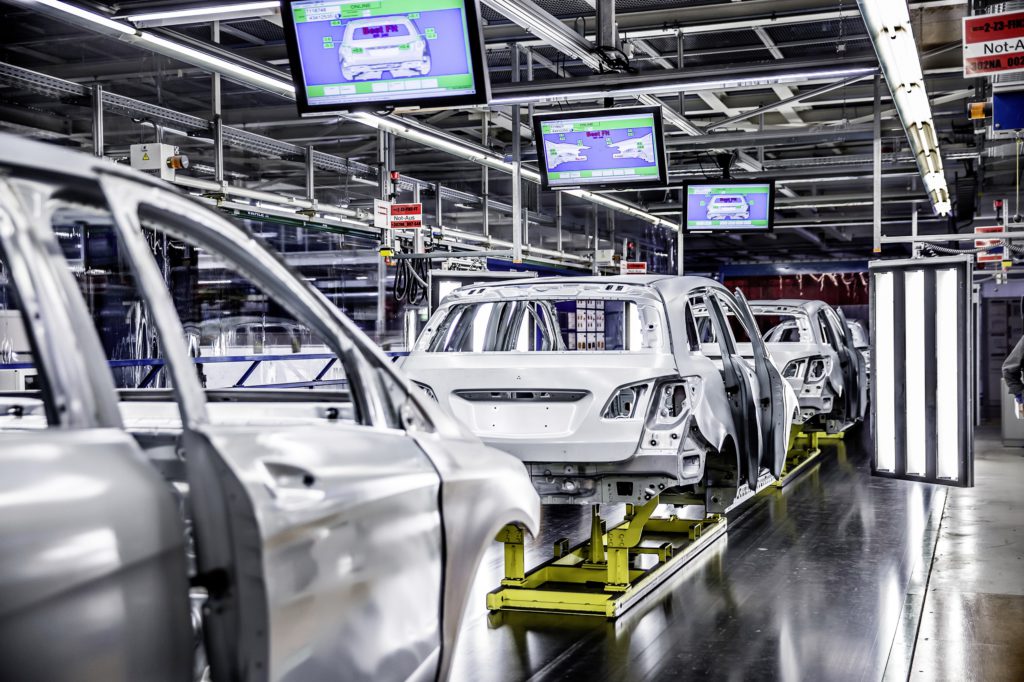Steel-import restrictions could have manufacturing consequences
14 June 2021

The European Automobile Manufacturers’ Association (ACEA) has reacted with disappointment to European Commission proposals recommending the extension of steel-import restrictions.
The Commission introduced measures in 2018 to restrict imports of steel into the EU, following similar restrictions taken by the Trump administration in the same year. This takes the form of a ‘tariff-rate quota’ that places a 25% duty on imports above a certain level.
With the COVID-19 pandemic causing economic problems for many European markets, the Commission could extend its restrictions by three years.
However, the proposal comes in the face of acute shortages in the European carmakers’ steel supply chain. These shortages have led to a slowdown in manufacturing, with crisis management of orders to help avoid production-line stoppages. The restrictions have also pushed up the price of steel, with producers now charging up to €1,300 per tonne for automotive grades.
Not enough
Vehicle manufacturers source over 90% of their steel in the European Union. However, since production lines started work again in the summer of 2020 following pandemic-related lockdowns, there has been a serious shortage, according to ACEA. The safeguard measures in place limit the potential of carmakers to balance these shortages through imports.
The industry body states that while the Commission proposes an expansion of the quota for certain automotive grades, the increase is marginal. This, it believes, would make no difference to the lack of supply or the inflationary effect of the safeguard.
‘In a market where EU steel producers are dictating prices and reporting record earnings, the idea that domestic steel is under threat of serious injury from imports is scarcely credible,’ stated ACEA director general, Eric-Mark Huitema.
UK restrictions continue
Following its withdrawal from the EU, the UK adopted the ‘steel safeguard’ measures on 19 of the 28 product categories of steel. Along with those of the EU, these quotas are due to expire on 30 June.
The UK’s Trade Remedies Authority (TRA) has published its final recommendation, with plans to extend measures on 10 product categories for another three years. These include grades for automotive manufacturing and vehicle parts.
The TRA also recommended the progressive liberalisation of the measure every year over the three years, increasing the levels of each of the allocated tariff rate quotas to ensure that the measure balances the needs of UK steel producers and those who use steel products.
‘The Trade Remedies Authority has been set up by statute to provide impartial, data-driven economic assessments like this recommendation on steel safeguards. We have listened carefully to all interested parties throughout the review, and we have made some important changes to our preliminary decision in light of new information provided over the past few weeks,’ explained chief executive of the TRA, Oliver Griffiths.
Manufacturing disruption
Carmakers are already reeling from numerous manufacturing impacts that have slowed production rates. The COVID-19 pandemic caused lines to close for some months due to lockdowns, while the economic implications slowed sales once they resumed.
This year, the issue of semiconductors has become a hot topic. Manufacturers are struggling to find supplies of the critical components as they battle against an increase in sales of technology goods, with consumers buying new phones, laptops and other devices during lockdowns.
As the automotive industry tries to recover from the impact of COVID-19, any further disruptions to supply chains and impact on production will not be welcomed. ‘We need imports to fill supply chain gaps,’ concluded Huitema. ‘If this proposal is approved by member states in its current form, then the market situation will remain critical for automobile manufacturers for the foreseeable future.’